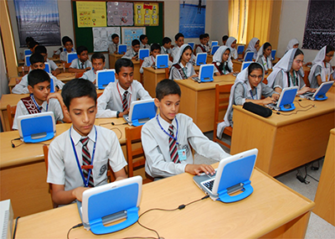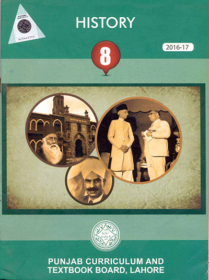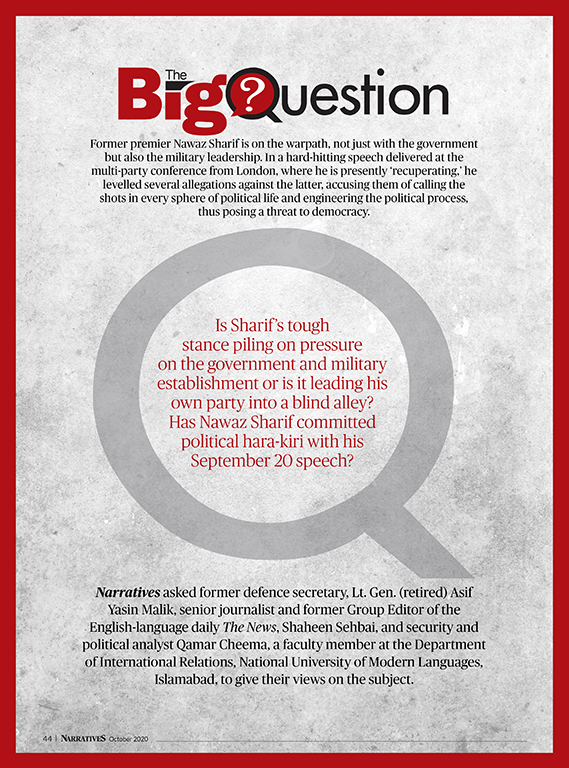
The Single National Curriculum (SNC) is not a bad idea. Prime Minister Imran Khan’s decision to provide a level playing field to all students, irrespective of their class or social background, is in principle a step in the right direction. Pakistan’s class-based education system remains a major factor in creating divisions within society, giving students from the elite class a head-start in their life, while blocking or creating hurdles in the social and economic mobility of those who belong to the lower economic strata.
It is often said that “the road to hell is paved with good intentions.” Ironically, this aphorism aptly highlights the chaos that has been created in the entire education sector in the name of the SNC, under the watch of Federal Education Minister Shafqat Mehmood.
According to several leading educationists, the “ill-thought out” concept of a SNC, instead of raising the overall bar of education in Pakistan would in fact lower it, as it appears to be aimed at appeasing the conservative elements in society. At the same time, it has also shaken the struggling publishing business as one of the major regulators — in this case the Punjab Curriculum and Textbook Board (PCTB) — itself has become their competitor.
How? Highlighting and understanding this is important if the Pakistan Tehreek-e-Insaaf (PTI) government wants to ensure that the shelf life of its SNC is longer than its own days in power.
According to the SNC implementation plan, in phase one, the new pre-one to class five curriculum would be implemented this year (2021), while the phase two, for classes sixth to eighth, in 2022, and phase three, for classes ninth to twelfth, in 2023.
On paper, there should be no problem with the vision of the SNC, which pleads the case of “one system of education for all, in terms of curriculum, medium of instruction and a common platform of assessment, so that all children have a fair and equal opportunity to receive high quality education.”
However, the SNC, which has been unveiled, falls short in many aspects and over-emphasises rote-learning, which even the leading educationists of the 20th century had rejected.
According to a Facebook post by Kasim Kasuri, CEO of the Beaconhouse School System, “the SNC does not include art, music, physical education, IT/robotics, personal/social/health education (PSHE), all of which are key components of the Beaconhouse curriculum.”
“After a detailed mapping exercise, we have learnt that even the subjects it does cover, only address 70 percent of the content delivered in similar subjects in the existing Beaconhouse curriculum up to Class 5,” he wrote.
This is just one example of how the leading educationists of the country view the SNC.
Further, the SNC expands the quantum of religious education exponentially, which appears solely aimed at winning the hearts and minds of the operators of religious seminaries. Under the SNC, Islamiat is a separate subject from class one onwards and elements of compulsory teaching of the Holy Quran, reading of the 200 Ahadith from class I-XII has been added to it. In addition to memorising the Surahs, 40 Ahadith also need to be learnt by heart from class I-VIII.
According to another education expert, who spoke on condition of anonymity, the architects of the SNC have sprinkled similar topics including Islamic personalities and national heroes in the other subjects as well. “There is a lot of repetition of topics and themes from Islamiat, even in subjects like Urdu and English,” she said. “I fear that the SNC will not lay a strong foundation of education in the young minds but will create puppets.”
“Sadly, the Urdu language also suffers in the SNC… The basic Urdu Qaeda, which normally has been taught at the pre-school level, is now being included in grade one,” she added.
Similarly, educationists have expressed their concern regarding the fact that the SNC, instead of declaring Computer Studies a compulsory subject and incorporating ‘coding’ in the secondary classes, has removed it altogether from the primary classes. They lament the fact that the subject of Information Technology does not even exist there.
The government should have aimed at improving the quality of education in seminaries, and government and the smaller private schools; what it has done instead is that those performing better are being stopped from doing so. Then a key element of raising teaching standards and ensuring basic facilities at schools remain the biggest missing link from this grandiose plan.
As for publishing textbooks, the PCTB has emerged as the biggest hurdle for publishers. Instead of facilitating them to adopt the new system, it has become their biggest competitor.

It has declared that no textbook can be taught at schools without an NOC from the PCTB. Unfortunately, the procedure for obtaining NOCs is not just lengthy and vague, but also expensive.
According to a Lahore-based publisher, the PCTB does not have the capacity to review books and take fair and timely decisions. “We do not know how long it will take to get an NOC, or how to file an appeal if a decision is unjust; what is the route for redressal of any grievances or a bad decision. Everything is so vague and opaque.”
The biggest objection of the publishers to what they call “PCTB’s draconian measures” is the raising of the NOC fee for each textbook from a maximum of Rs. 10,000 to Rs. 150,000.
Publishers have already incurred huge inventory losses, while the future prospects of reviving their businesses also appear bleak.
With the PCTB itself publishing textbooks, there is a clear conflict of interest — an issue which needs to be addressed, according to the publishers.
Despite protests and intense lobbying, both the federal and the Punjab governments appear oblivious to the concerns of the stakeholders.
Only in the Sindh province, which has refused to be part of the SNC at least for this year, it is business as usual. The Federal and Punjab governments are already at loggerheads with publishers as there are concerns that the provincial governments of Balochistan and Khyber Pakhtunkhawa will soon jump onto the SNC bandwagon.
The government needs to address the concerns of all stakeholders on a war-footing and end the uncertainty in the education sector, which has already been jolted by the pandemic. If the government continues to push the SNC in the same rabid way as it is doing now, Prime Minister Imran Khan’s plan to reform the education system would collapse even before it takes off.



